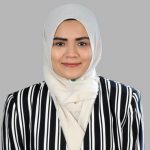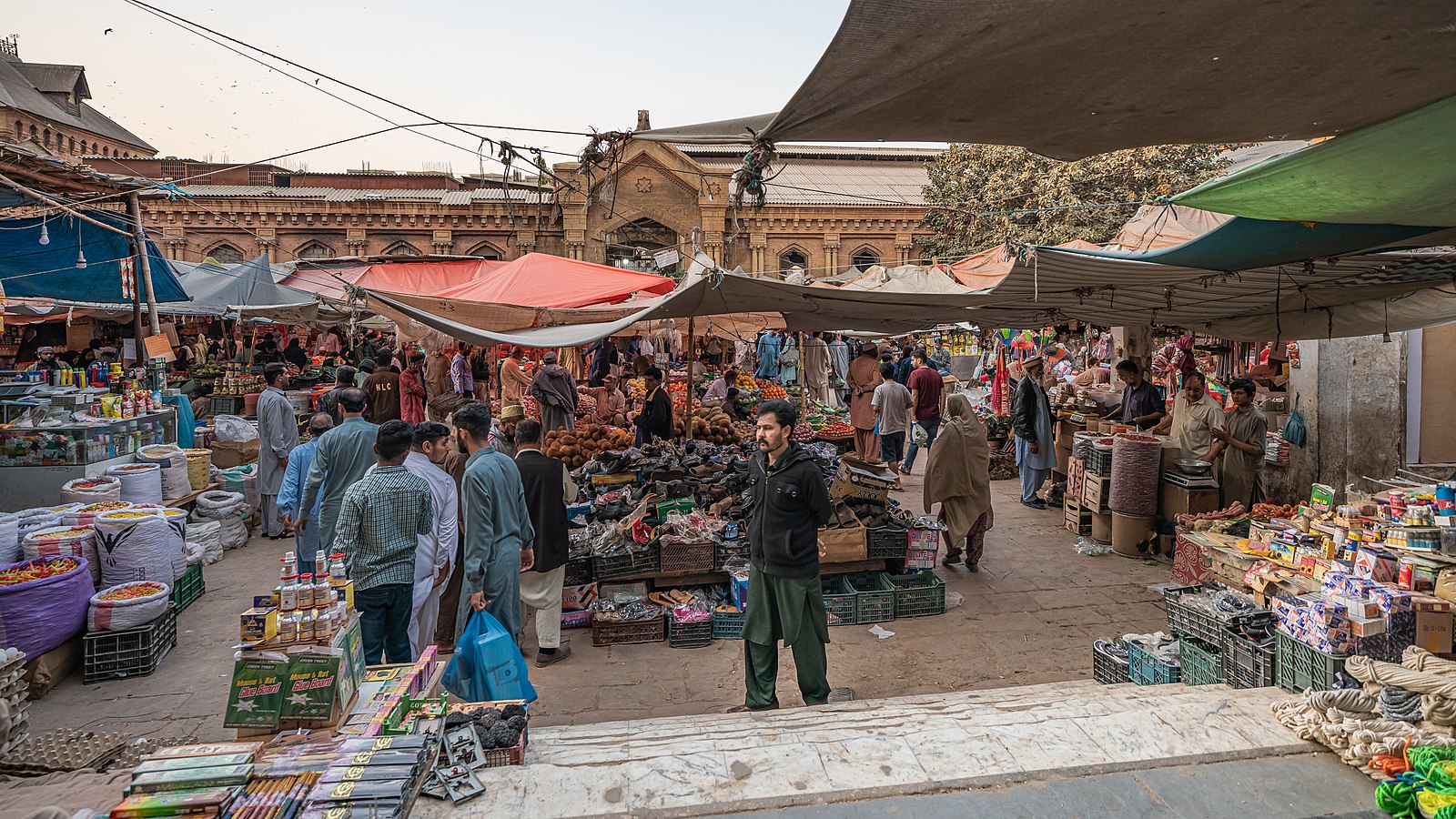

The woman is covered in ornaments from head to toe.
She is sitting underneath a colorful umbrella that is enveloping her in a shadowy hue. Not that she needs the extra colors – she’s wrapped in an eye-catching Sari with splashes of pink and yellow. You can tell when she shuffles her feet slightly, thanks to the silver anklets on her feet. One can’t help being drawn to the bright red bangles on her arms which she moves deftly as she shows the assortment of dry fruits she is selling – bunches of figs around thick ropes that she unravels as if it’s a garland, along with heaps of raisins and almonds.
The woman is seated on the pavement in front of Empress Market, Karachi. She seems to bear no mind to the heat raging from the sun. It is after all 100 degrees Fahrenheit and the city has already seen one fatal heatwave in 2015. Yet, with her bright Sari and umbrella, she rules this street.
As I stand there, I desperately wish to ask her how she stands it. I am reminded of the heatwave and the scenes in the hospital I was rotating at just miles from here. A government hospital in Pakistan means dubious electric supply for even fans to run at times, let alone ACs or refrigerators. We led volunteers throughout the city who brought with them cold water bottles and ice wrapped in plastic bags. This was Karachi responding to the horrifying images from the news– of men and women, particularly the elderly, dying of heatstroke, arriving too late to the emergency departments that were already full.
I wonder where she was in 2015. I wonder what shelter she sought refuge in.
As I go inside, the usual scene meets my eyes. Under multiple canopies, there are lines of stalls next to each other. An elderly man hurries over. He is carrying a sack and offers to carry the heavy load of groceries. He knows people like to buy in bulk here and it serves him – his livelihood stemming from carrying the weight of their groceries.
He is thin and his voice is hoarse. When was the last time he had a medical checkup? I can easily place him in the hospital I rotated at, my mind already detailing the risk factors his life must entail. I go further and another man catches my eyes. There is a harness of sorts wrapped around him and a pulley that is attached to what appears to be an oil churning machine. Crushed almonds are placed in a heap and the pulley appears to be churning through it as the oil drips in the container down below. This is a ‘kohloo’ – a machine churning out bottles of oil for the buyers, its lightness masking the weight and strength taken to attain it. I think of the dozens of hernia patients we used to operate on daily.
I hesitate to call either man old. I cannot put a number on his age. I learned that the hard way as a student, amidst the throngs of patients crowding the clinics, who with their wizened skin and cachexic cheekbones struck me to be at least 60. Their files showed me I was almost twenty years ahead.
Our professor was unfazed. “That’s what this kind of life does to you.”
I once read that a physician can make a difference in the lives of the patients you serve daily but there are a million more you can reach out through public health. I look at the men and women in the bustling marketplace. They are my clients, the ‘end users’, the ones I wish to reach.
I wonder if they pray for rain. Karachiites love the rain because we get so little of it. Last year, the torrential downpours had initially been a welcome sight. But the water then cascaded through broken bridges and cracked pavements, through rusting electric poles and scattered rubbish. It flooded the streets making its way inside people’s dwellings. I look at the man and his faded sack. Perhaps his home too had been affected.
I may perhaps never see these men or the woman in the sari again – but they may see plenty. Disasters come and go in this city, after all.
But they will be back again, under the same heat, ready to stand against all obstacles.
Perhaps, one day, I can fight for them too. For now, all I can do is write.
BCPHR.org was designed by ComputerAlly.com.
Visit BCPHR‘s publisher, the Boston Congress of Public Health (BCPH).
Email [email protected] for more information.
Click below to make a tax-deductible donation supporting the educational initiatives of the Boston Congress of Public Health, publisher of BCPHR.![]()
© 2024 BCPHR: An Academic, Peer-Reviewed Journal